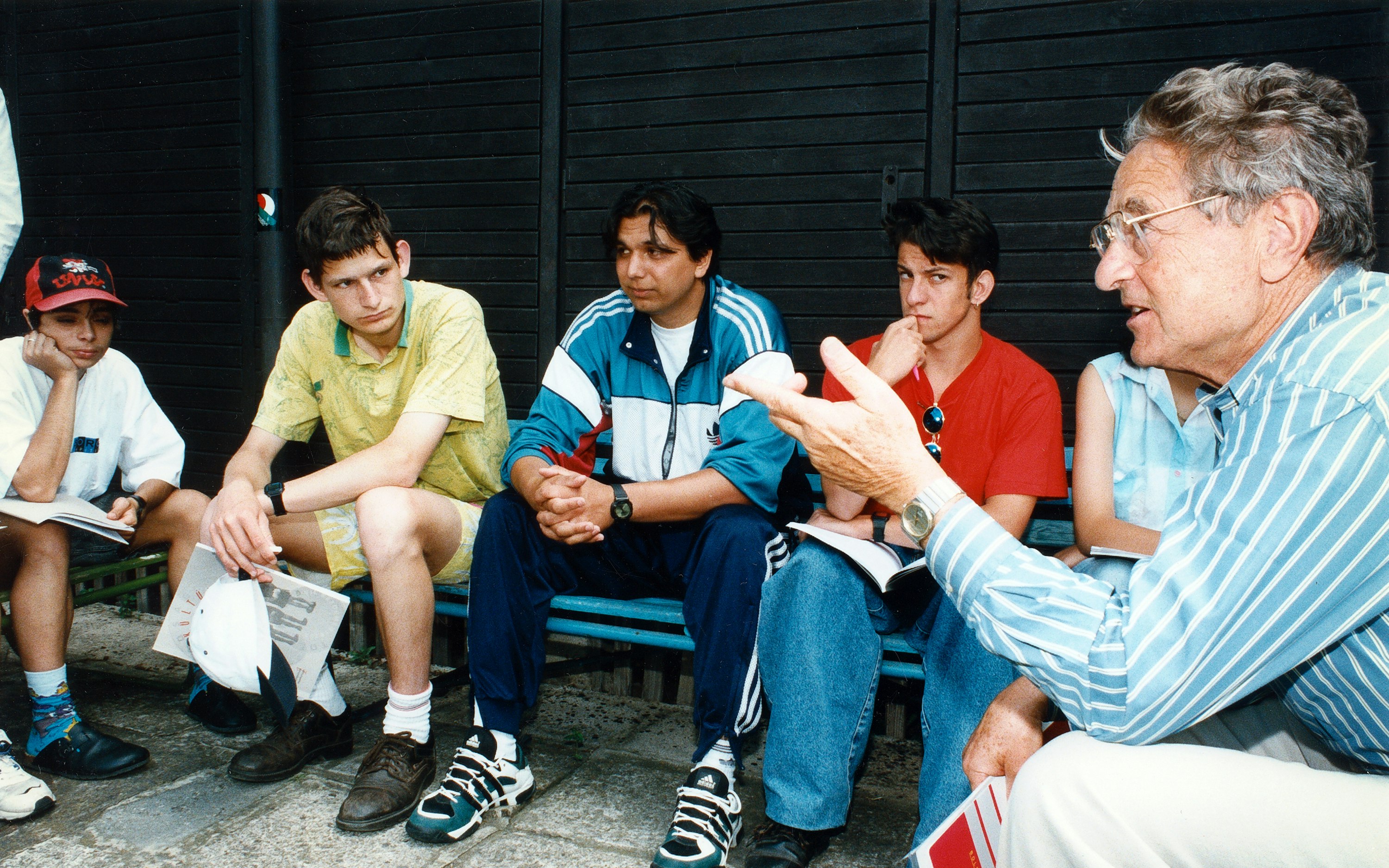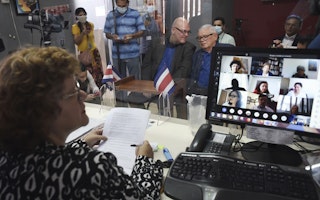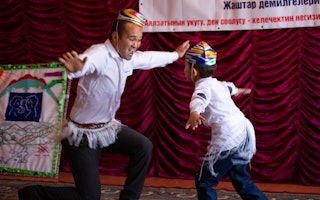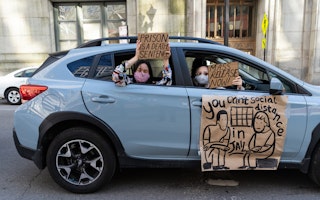In Depth
Inside the Archives: George Soros and the Fight for Roma Dignity
For over 40 years, George Soros has been the leading private supporter of Europe’s Roma—the continent’s largest and most excluded ethnic minority—championing Roma leaders in their fight for equality and against deep-rooted discrimination.

Inside Open Society
Forging New Paths to Green Development for the Global South

With climate disasters becoming more frequent and economic insecurity fueling unrest, the green transition can be a vital catalyst for countries to become more equal and prosperous, while protecting the planet.
Visual Storytelling
Q&A: Visual Witnesses: Photojournalism in a Changing World

World Press Photo Foundation's executive director reflects on the organization’s legacy, its evolving role in photojournalism, the impact of AI on the industry, and efforts to promote diversity and inclusivity in visual storytelling.
Inside Open Society
Reimagining Drug Policy with Compassion and Justice

Drug policy should be rooted in principles of public health, human rights, and uphold human dignity. Open Society strives to promote humane, evidence-based approaches to drugs and drug use worldwide.
Topics
Latest Voices
A Crisis Averted
Fighting the Pandemic in Pakistan’s Prisons

Thanks to the heroic efforts of civil society groups, prisoners in Pakistan did not suffer a mass outbreak of COVID-19. What the near miss underlined, however, is the country’s urgent need for criminal justice reform.
Rest in Peace
Remembering David Rothman, a Liberator and Pioneer
Rothman, a scholar-advocate of the highest order who had a profound influence on Open Society, wrote on a wide array of subjects concerning ethics and medicine, and helped free thousands of people from involuntary institutionalization.
Love Prevails
Q&A: How Marriage Equality Won in Costa Rica

By emphasizing love, equality, and authentic storytelling, advocates for same-sex marriage in Costa Rica were able to overcome a challenging public opinion environment and achieve a landmark victory for LGBT rights.
A More Open Future
Q&A: In Kyrgyzstan, a Small Investment Can Make a Big Difference

Using accessible and innovative approaches such as music, dancing, street theater, and more, rights advocates in Kyrgyzstan are doing the grassroots-level work that is essential for a healthy civil society.
Sex Work Is Work
The Multiplying Threats Facing Sex Workers Today

The COVID-19 virus has disproportionately harmed millions of sex workers, who are grappling with economic catastrophe, a global pandemic, and government policies that make an already dire situation even worse.
Bring Them Home
Q&A: Racial Justice and Restitution

During a moment of reckoning with the legacies of racism, the African Foundation for Development is working to return objects to Africa that were looted during the eras of colonialism and imperialism.
Event Recap
A History of Presidential Lies

While U.S. President Donald Trump is known for lying, a new book from the journalist Eric Alterman argues that he is far from the first president to do so—and raises questions about the relationship between executive power and “alternative facts.”
Strength in Numbers
Q&A: How Collaborative Journalism Defeats Censorship

Responding to increasingly violent attacks on reporters all over the world, the organization Forbidden Stories brings journalists together to amplify the stories that enemies of a free press want to keep hidden.
Public Health First
Incarceration Should Not Be a Death Sentence

Despite earlier promises to fight the spread of COVID-19 by reducing the number of nonviolent offenders in jails and prisons, governments worldwide are dragging their feet and prioritizing the drug war ahead of public health.
Standing Up to Big Brother
Q&A: A Big Step for Global Privacy Rights

By ruling against a government intelligence agency, one of the most powerful courts in Germany has struck a blow for data privacy and free expression.